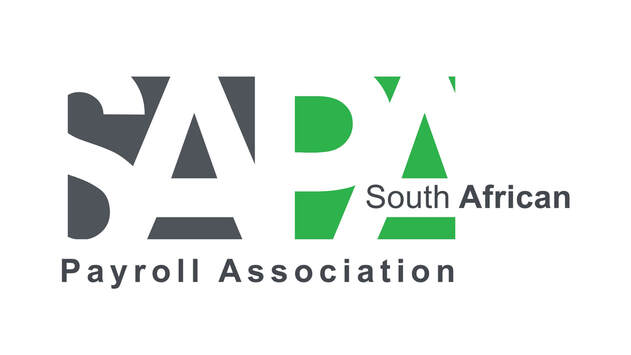|
The South African Reserve Bank and National Treasury have become aware of an increase in payroll deductions in recent years.
Stakeholders were engaged to create a regulatory framework to govern payroll deductions and the resulting proposal has led to three very limited options on how companies can govern employees’ payroll deductions. Arlene Leggat, President of the South Africa Payroll Association (SAPA), says that while the SAPA wasn’t consulted during the initial development of the Joint Proposal, it is now working alongside National Treasury to gain more insights on how companies are making deductions against employees’ salaries. This information will be used to inform policymakers on salary deductions that companies are making. The impact of the new payroll deduction options as per the Joint Proposal “The new payroll deduction regulatory options will have a vast impact on how payroll departments can make deductions. Employee rewards and benefits programmes often include salary deductions and reimbursements for everything from office-based gym memberships, canteen facilities and creche services to cell phone plans and travel schemes. If a company can no longer claim deductions, it not only affects payroll, but how the company attracts and retains talent,” says Leggat. In the recently published Joint Proposal by the SARB, there are three payroll deduction regulatory options: -Option 1 cites no access to payroll voluntary deductions; only statutory, court order, collective agreement and arbitration award deductions can be made against an employee’s salary. -Option 2 stipulates limited access to voluntary payroll deductions; enhance and adopt principles of the current regulations governing government payroll deductions. -Option 3 offers unrestricted access to payroll voluntary deductions. SAPA, together with the working committee from SA Reserve Bank, have designed a survey that enables companies to indicate how deductions from employee salaries are being made. This information will help inform National Treasury and the SARB on decisions regarding payroll deduction regulations going forward. Why does National Treasury need to clamp down on payroll deductions? Essentially, the offering of payroll deduction services provides preferential treatment to certain beneficiaries as their payments are processed before the remaining funds are transferred to the employee’s banking account. Only thereafter are other creditors or service providers allowed to collect on the remaining available funds. Leggat says there are cases where a person is required by a court of law to pay their debts but has no liquidity after all their payroll deductions. “Employee deductions have created a nation of employed people who are living in poverty. In the absence of an appropriate regulatory framework for discretionary or voluntary payroll deductions, employees remain vulnerable and susceptible to potential exploitation by unscrupulous employers and service providers,” says Leggat. Leggat concludes by saying that participation in SAPA’s survey can help the SARB and National Treasury develop a fair payroll deduction regulatory guideline. “We’re asking for transparency on what gets deducted from your employees’ salaries. This is your chance to highlight what services need to be included in the new guidelines.” The survey results will assist to accelerate the process of finalising the regulatory position on payroll deductions in South Africa. The survey can be found here: https://lnkd.in/d69k8Xm An explanatory note regarding the survey can be found here: https://lnkd.in/d-7gn8Y ENDS MEDIA CONTACT: Rosa-Mari Le Roux, 060 995 6277, rosa-mari@thatpoint.co.za, www.atthatpoint.co.za For more information on SAPA please visit: Website: http://www.sapayroll.co.za/ Twitter: @SAPayroll LinkedIn: The South African Payroll Association
0 Comments
Draft changes to UIF regulations bring fairness for contributing refugees and asylum seekers28/10/2019 The Department of Labour has issued draft regulations that will eventually open the door for refugees and asylum seekers to claim benefits from the Unemployment Insurance Fund (UIF).
Jethro Malapane, executive committee member of the South African Payroll Association, says since 2009 the regulations that govern UIF were updated to include "non-RSA" identity documents and "valid foreign identity documents and passports. Yet it continued seeing the asylum seekers still barred from payouts they were eligible for. In order to obtain a South African identity, they first have to be granted asylum. This process should not take longer than 180 days, but in reality this often takes several years. The draft regulations have been the result of successful litigation by Werksmans Attorneys’ pro bono team. The current policy has been declared unconstitutional in February this year, and the draft regulations for consideration have now been published. If someone has fled their country and fear prosecution because of race, religion, politics or being a member of a specific social group they are considered to be an asylum seeker and once they have been granted asylum they are considered to be a refugee in South Africa. Once they receive an asylum seekers permit (a section 22 permit), which is valid for six months, they have the right to work and study in SA and is protected against deportation to their country of origin, the Department of Home Affairs explains on their website. The asylum seeker has to undergo a second round of interviews in order to obtain written recognition of refugee status (a section 24 permit) which is valid for two years and is renewable. Malapane says the draft regulations have been released for stakeholder input, and once the comments have been considered the final regulations will be published. “It is possible that the final regulations will be published this year still, but there may be a delay with the updating of the systems at the Department of Labour and the UIF.” Malapane emphasis that people who do not have a valid work permit, or who has entered the country illegally will not be entitled to work in SA, and therefore could not be eligible to contribute to or benefit from the UIF. “It is my understanding that those who were not able to claim in the past because of the current regulations, may be in a position to backdate their claims.” He explains that they may be given a window in which to resubmit claims that have been rejected. However, there is no indication how long it will be backdated in order to assist people who lost their jobs and were not entitled to their contributions to the fund. The UIF will have to increase its capacity to deal with the registrations and potential increase in the number of claims going forward, Malapane says. ENDS MEDIA CONTACT: Rosa-Mari Le Roux , 060 995 6277, rosa-mari@thatpoint.co.za, www.atthatpoint.co.za For more information on SAPA please visit: Website: http://www.sapayroll.co.za/ Twitter: @SAPayroll LinkedIn: The South African Payroll Association President Cyril Ramaphosa says that all South Africans will be covered by the National Health Insurance (NHI) by 2025, but there is still little clarity as to how the NHI will be funded.
Arlene Leggat, Executive Committee Member of the South African Payroll Association (SAPA), says that payroll departments will need to prepare for the ripple effect that this will have on a company’s payroll. “Logistically, payroll departments can easily implement a method to deduct money from employees’ salaries for the NHI, which is a likely scenario considering that government is yet to determine how the NHI will be funded. The challenge is that payroll coffers aren’t limitless. Additional deductions from employees’ salaries can result in financial pressure on employers and their employees,” says Leggat. Cost of the NHI still undetermined The NHI Bill was tabled in Parliament in August 2019, but there isn’t clarity on what the scheme is going to cost each year. The original NHI white paper, which was published by the Department of Health in 2010, estimated it would cost the economy around R256-billion per year. Economists have said that this number is grossly underestimated and the former health minister Aaron Motsaoeldi admitted this number was only a “guestimate”. Besides the cost of the NHI being undetermined, a pilot project that government implemented to test the preparedness of health care facilities for the NHI showed that most facilities failed on a governance level and that there aren’t sufficiently resourced. “Hospitals will need to ensure that they can offer the services that are needed and implement a financial management structure that can accommodate the NHI,” says Leggat. Crunching the numbers of potential funding scenarios The white paper proposes a number of scenarios as to how the NHI could potentially be funded, such as increasing UIF or VAT, using money from the Road Accident Fund (RAF), or utilising what is currently the Medical Tax Credit given to taxpayers towards NHI contributions, among other options. Many of these scenarios, says Leggat, won’t amount to the sum that is needed for the NHI. “According to the 2017/2018 SARS report, medical tax credits equalled approximately R20-billion, which is a far cry from the alleged R256-billion that will be needed per year. If the RAF fund is used, the NHI could receive a once-off injection of around R55-billion. With tax revenue being R1.2-trillion, VAT would have to be doubled to meet the required target, which will be unaffordable to the public. It is expected that the funding for the NHI will have to come from the South African workforce. Exactly how this will impact the public and payroll departments is not yet known,” says Leggat. In order for the NHI to be effective and functional, it is imperative that the number-crunching is done accurately. Failure to do this will result in a system that cannot be sustainable. ENDS MEDIA CONTACT: Rosa-Mari Le Roux, 060 995 6277, rosa-mari@thatpoint.co.za, www.atthatpoint.co.za For more information on SAPA please visit: Website: http://www.sapayroll.co.za/ Twitter: @SAPayroll LinkedIn: The South African Payroll Association Authored by; Rob Bothma, Exco member of the South African Payroll Association (SAPA)
Last month I spent some time speaking at the various South African Payroll Association’s regional annual conferences, focusing on fraud in payroll. In my preparation for these talks I decided that I would focus my talk around the impact emerging technologies are currently having with regards to compliance in the payroll department. During my research on this topic one of the scariest things I found was that, although on the one hand technology can be used to assist the HR and Payroll teams in fighting fraud, it was also being used to assist employees in committing fraud. One of the scariest facts coming out while gathering information for this talk was the amount of fraud being committed with regards to “ghost employees”, in both the private and public sectors. When looking at what technologies are available to fight this and other acts of fraud within payroll, the newest and probably the most powerful is no doubt the use of Artificial Intelligence (AI), which includes various technologies such as: Machine Learning, which provides the ability for systems to learn and improve from experience without being explicitly programmed to do so. This process starts with analysing large amounts of historical data, to provide the input required to create the relevant algorithms, which once created can then be utilised against the organisation’s current data to start providing predictive analysis results. Analytics, which can be utilised for the creation of real-time dash-boarding, presenting data in an easy to view visual representation, which can be extremely informative, in standard pie and bar charts format, which are easy for users to interpret. Blockchain, which utilises distributed ledger technology, which is essentially a system of record where many copies of a record are stored across various servers, ensuring that no one individual can edit a record without the “approval” of all other parties. Think of an individual’s education record, which is essentially co-owned by all parties but cannot be manipulated by the individual themselves, thus providing a record that can be trusted by all parties who have access to it. Another area which I raised in these talks was the whole issue of Audit Trails. Being involved with software vendors for the past 30 odd years, I never ever came across an organisation that did not specify that any payroll solution they would use, needed to have full audit trail facilities which at a minimum would record details such as before and after images after every transaction, who initiated the transaction as well as the usual date and time stamping. Two challenges:
And this is where Analytics can play a big role. Have real time data being displayed, can help with not only detecting fraud but also empowering management to take immediate steps in stopping fraudulent transactions before they can be completely processed. With the power of emerging technologies having the ability to “learn”, this makes them extremely powerful when it comes to analysing data, providing both analytical results and predictive indicators, empowering HR and management with true decision support capabilities. By taking this learning capability and applying it to fraud prevention, it is easy to see how new-age systems are able to create patterns of behavior based on historical data, and then quickly being able to identify when a change in pattern or an anomaly is encountered. For example, a payroll user who suddenly starts editing employees’ bank account details or starts creating new employee records in numbers that are way above the norm. It’s not to say that these are not valid transactions, but by being alerted by a change in behavior empowers the organisation’s risk team to investigate the relevant transactional detail, enabling them to assess the situation to determine the probability of fraud being committed. One of the downsides of using sophisticated technology is that sometimes areas of risk can be hidden within the configuration of the system, and as such, can often be overlooked, and in this example, who has been assigned the administrator rights to controlling the Auditing function. Another big contribution to fraud is the lack of visibility regarding segregation of duties It is very difficult to manually monitor each and every user’s access rights on a continual basis, as new users are continuously being added and while other being deleted, making this a cumbersome task that eventually gets ignored. This is the ideal breeding ground for the ghost employee phenomenon. If an unauthorised user can create a ghost employee and then have the ability to execute a payroll run for them, this is a fraudster’s paradise. No wonder my research uncovered so many examples where millions of Rand were being lost through payments made to non-existent ghost employees! In each of the cases, there was either no control on the segregation of duties or collaboration between staff members to overcome this control. In summary, the tools to both fight and prevent fraud in payroll have become extremely sophisticated and are now available to organisations of any size. Payroll managers need to take an urgent look at the limitations of their current systems and ensure that these are mitigated through either replacing the current payroll solution or at the very least ensuring that the payroll is upgraded to a version where these AI capabilities are available, to ensure that fraud in your payroll is eliminated in its entirety. ENDS MEDIA CONTACT: Rosa-Mari, 060 995 6277, rosa-mari@thatpoint.co.za, www.atthatpoint.co.za For more information on SAPA please visit: Website: http://www.sapayroll.co.za/ Twitter: @SAPayroll LinkedIn: The South African Payroll Association The rise of the gig economy has led to an influx of temporary workers within companies.
Jethro Malapane, Executive Committee Member at the South African Payroll Association (SAPA), says that a continual inflow and outflow of short-term engagements by independent workers not only impacts the way a company’s payroll department needs to function, but it also impacts the finances of those who choose gig work over full-time employment. “If you are a gig worker, you likely benefit from a more flexible working schedule and the ability to choose the jobs that you pitch for. The downfall is that companies aren’t obligated to offer you the same types of benefits that full-time workers receive. You will have to do your financial planning yourself,” says Malapane. He says that gig workers need to plan their budget to match their income, have cash stashed away for emergencies and plan for tax contributions. “As a self-employed worker, you are responsible for your annual tax contributions. Remember that your income may fluctuate and that your budget needs to allow for busy as well as slow work periods. Besides committing to your retirement and medical aid policies, you should also have a nest egg for emergencies,” says Malapane. Updating a payroll department for gig workers He says that many companies and payroll departments have had to adapt their processes to accommodate gig workers. “Uber and Taxify overhauled how their payrolls were administered to accommodate gig workers. While the majority of local companies currently have a smaller number of gig workers compared to full-time employees, this balance will continue to shift in future. If the gig economy hasn’t already affected your payroll department, it will soon,” says Malapane. Payroll professionals and business need to get comfortable with a fluctuating payroll that has a variety of types of workers that it needs to accommodate. One of the ways to streamline this effort is to use an intuitive, future-ready system or software that has been set up to automate payroll calculations, tax deductions and UIF contributions for various types of workers. “Companies who are still clinging to the old way of doing things will soon have to start relooking software and web-based solutions that are available on the market. There are great payroll solutions that can automate many of the calculations for you and ensure you are meeting your tax, UIF and other statutory obligations,” says Malapane. Don’t fail to embrace change in your payroll department Even with intuitive systems, the gig economy has still put an administrative burden on payroll and Human Resources to address the issues of legislative alignment. “This is still new territory for many of us and we’re still learning, but the important thing is that your company does not fail to embrace the change. Challenging current wisdom and making radical changes to accommodate new workers and pay them efficiently is what is needed to thrive in the new gig economy,” concludes Malapane. ENDS MEDIA CONTACT: Rosa-Mari Le Roux, 060 995 6277, rosa-mari@thatpoint.co.za, www.atthatpoint.co.za For more information on SAPA please visit: Website: http://www.sapayroll.co.za/ Twitter: @SAPayroll LinkedIn: The South African Payroll Association Payroll is often seen as merely a processing function. Christelle Helling, Executive Committee Member at the South African Payroll Association (SAPA), says payroll affects every aspect of the business, from the morale of its employees to its reputation. Boost employee morale Helling says people come to work for their salaries and inconsistent or late salary payments not only affects their livelihood but has a ripple effect on morale at the workplace. “If payroll misses one of its deadlines, it could mean that staff don’t have funeral cover, medical aid, or a contribution towards a medical fund that they’re relying on for their old age. This has a drastic and immediate impact on the morale of staff and it’s a responsibility that rests solely on payroll’s shoulders,” says Helling. A watchdog for businesses The payroll department is the watchdog of the company. Payroll professionals are the ones who must continuously stay up to date with tax and legislation changes as well as ensure that these changes are implemented throughout the business. “Whether a change in policy or legislation results in a benefit percentage change or behind-the-scenes administrative compliance changes, payroll needs to lead the way with change management for the rest of the business. Payroll needs to align itself with Human Resources’, the business’ and the government’s requirements to make sure everyone sticks to the rules,” says Helling. Spearhead the uptake of technology The payroll departments of industry-leading companies are often the first to adopt digital tools such as new ticketing systems or moving to centralised shared services. “My payroll department launched a ticketing system that enables employees to launch queries and ask for assistance on the fly from their mobile phones. We’ve also automated reporting to free up resources and we use business analytics to drive decision-making. As the people who report on the bottom line, other departments look to payroll to take the lead when it comes to implementing future-focused processes and systems,” says Helling. A haven for people People are often worried about approaching a payroll professional with questions about their salaries, benefits or deductions. Being welcoming to questions about the most important aspect of people’s lives – their livelihood – is what makes a good payroll department. “Knowing a person’s take-home salary isn’t exactly a conversation starter. Payroll professionals know it can be daunting to approach someone with salary-related questions. One of the most important but unseen roles of payroll is to be a friendly, accommodating and empathetic face that welcomes queries. A good payroll professional will reassure a person that their questions are valid and important,” says Helling. A barometer of the way a company does business The payroll department is often a very good barometer of how companies treat their employees, says Helling. “If a company reliably pays employees every month, it says something about how they value their staff. If payroll is disciplined, it will filter into other departments. How a payroll department works tells you a lot about how a company works,” concludes Helling. ENDS MEDIA CONTACT: Rosa-Mari Le Roux, 060 995 6277, rosa-mari@thatpoint.co.za, www.atthatpoint.co.za For more information on SAPA please visit: Website: http://www.sapayroll.co.za/ Twitter: @SAPayroll LinkedIn: The South African Payroll Association Hardly a week goes by without a company announcing that it is forced to let some of its staff go, adding them to the growing number of unemployed people in South Africa.
Companies must ensure that this traumatic experience is not exacerbated with hiccups, delays, errors or complications with the process and the calculation of severance payments. Follow the right procedures Arlene Leggat, president of the South African Payroll Association, says the procedure for retrenchment is clearly set out in the Labour Relations Act. The Basic Conditions of Employment Act also provides clear guidance on what has to be included when calculating the severance package. The first step is to consult with employees as soon as the company contemplates a reduction of staff through retrenchments. However, in many instances the unions feel that as soon as the company starts consulting, they are not “contemplating” anymore, and that they have already made the decision to let people go. Leggat says companies on the other hand are not too optimistic about these consultations. The unions simply want to keep all the jobs without finding a solution. “There is often little understanding that if something is not done, everyone can lose their jobs.” Communicate openly Once the decision to continue with staff reductions has been made, employees must be provided with information relating to the reason for the retrenchments, what alternatives were on the table, why they were not chosen, and what the company is offering those employees who will be let go. This offering includes the severance package, but it can also include assistance with the updating of curriculum vitae’s, how and where to look for new employment and how to navigate and use social media. “Pay them as per the agreement and make sure all the tax directives are done. The approach must be that the company is not going to make this hard for anyone in any way.” Leggat explains that employees are entitled to notice, leave, bonus and severance pay. Years of service The act provides that an employee must pay an employee at least one week for every year of completed continues service. “It is extremely important to make sure that if the company is acquired by another firm that your contract of employment states that your years of service prior to the take-over will be taken into account.” There is generally an agreement that the new company will not retrench people for at least one or two years – but once that time comes there will be retrenchments, warns Leggat. People then find they only have one or two years of completed continuous service. The severance pay In order to calculate the value of that one week (it could be more, but it may not be less than one week) the employer must include the employee’s salary or wage, average overtime, shift and standby allowances, as well as travel allowances and commissions. It must also include the employer’s contribution to benefit schemes such as death, funeral, retirement and medical aid contributions. “The process does not have to be acrimonious. Engage in a genuinely consultative and transparent manner to find solutions that will work for everyone. It is possible,” says Leggat. ENDS MEDIA CONTACT: Rosa-Mari Le Roux , 060 995 6277, rosa-mari@thatpoint.co.za, www.atthatpoint.co.za For more information on SAPA please visit: Website: http://www.sapayroll.co.za/ Twitter: @SAPayroll LinkedIn: The South African Payroll Association Employers who feel they cannot afford to pay their workers the national minimum wage should not simply sit back and pay what they can afford.
They have to apply for an exemption with the Department of Labour through the National Minimum Wage online service, advises Jetro Malapane, executive committee member of the South African Payroll Association. The National Minimum Wage Act stipulates a minimum national rate of R20 per hour, or R3,500 per month, depending on the number of hours worked. The R20 an hour rate will be phased in slowly in the agriculture and domestic work sectors, with workers earning R18 and R15 per hour respectively. The maximum discount in terms of an exemption will be 10% of the hourly rate. Malapane says the department has given the assurance that their systems are up and running and that the exemption process is live, meaning employers can expect quick turnaround times. Exemption applications The department has received 385 exemption applications since the introduction of the minimum wage rates in January this year. Most of the entities who submitted applications were non-profit organisations and companies in the manufacturing sector. More than 240 exemptions were granted, 102 were declined and two were revoked because of fraud and misrepresentation of the exemption. The remainder of the applications are still in the audit process. In terms of the process a business must provide the department with the income statement of the past two years and the forecast for the current year, balance sheets, the number of employees, their working hours and wage information. The company must be able to proof that it consulted with the union representatives or affected workers if there is no union. According to Malapane a company may apply the reduced rates only from the date the exemption was granted. The exemption will be applicable for the next 12 months, and employers will have to re-apply on an annual basis. Focus on compliance “My advice is to focus on compliance. If there are any uncertainties or if there is any need for more clarity on issues, it is best to approach the department timeously.” He warns that the exemption can be revoked during the exemption period if there is evidence that the employer has given false information, or that the company’s financial position has changed in the course of the year. A trade union representative or an employee may approach the department with information that may cause the exemption to be revoked. The impact Concerns have been raised about the impact of a minimum wage on South Africa’s already dire unemployment situation. “An employer who cannot afford to pay the prescribed rate obviously may reduce employees which will affect the unemployment rate,” acknowledges Malapane. However, he refers to the partnership between the Department of Labour and Productivity SA to assist companies who are facing challenges. A company with more than 50 employees can approach Productivity SA to assess problem areas, develop strategies to better market the company, improve operations and to formulate financial plans. It can provide employees training on basic business principles, operations, and improved productivity. When the company is already in crisis it can assist with immediate actions to avert the closure of the business and job losses. ENDS MEDIA CONTACT: Rosa-Mari Le Roux , 060 995 6277, rosa-mari@thatpoint.co.za, www.atthatpoint.co.za For more information on SAPA please visit: Website: http://www.sapayroll.co.za/ Twitter: @SAPayroll LinkedIn: The South African Payroll Association Working time including overtime is regulated by the Basic Conditions of Employment Act, but many workers are not familiar with the technicalities of these laws and many employers do not adhere to the rules, says Arlene Leggat, President of the South African Payroll Association (SAPA).
One of the first things that employees should know is whether they can claim overtime according to the law. “The earnings threshold to be able to earn overtime is currently R205 433.30 per year. Companies aren’t legally required to pay overtime to employees who earn over this threshold. Overtime compensation also doesn’t apply to senior management, employees engaged as sales staff who travel to the premises of customers and regulate their own hours or employees who work less than 24 hours a month for an employer,” says Leggat. What if your employment contract says you can claim overtime? Leggat advises workers to fine-comb their employment contracts before they join a new company, as the wording in contracts that reference the Employment Act is often misleading. “Do not assume that you will be compensated for overtime if the contract says that you will be paid for the hours according to the Basic Conditions of Employment Act. If your earnings are over the threshold or you are exempt from overtime compensation due to your role, you might not be compensated,” says Leggat. In a 2010 lawsuit between packaging and paper group, Mondi, and its employees, Mondi argued that if employees were paid overtime and it pushed their salaries above the R205 433.30 per year earnings threshold, they weren’t obliged to pay overtime. Mondi lost the case and had to reimburse employees for the hours they worked. “People earning below the threshold aren’t high-income earners and unfortunately, the relationship between employees and employers regarding overtime often sways between beneficial towards workers and abusive,” says Leggat. Working extra hours: a double-edged sword Employees in the retail sector and food industry, for example, are often offered overtime shifts. According to the Employment Act, workers are not allowed to work more than 10 hours of overtime a week (collective agreement may increase this to 15 hours per week for up to 2 months a year) or more than 12 hours on any day. “While the law stipulates that workers aren’t allowed to work more than 10 hours overtime a week, they may be compelled to take on more work if they need the money. On one hand, employees benefit from the increased earning ability, but they need to make sure that they aren’t getting stuck in an abusive situation,” says Leggat. She concludes by saying that no employee can be forced to work unreasonable hours. “Most employment contracts imply that occasional overtime is expected as part of the role, but an employer can’t threaten you to work unreasonable hours. Reach out to the Department of Labour if you are working unfair hours or you are not being compensated for your extra work,” concludes Leggat ENDS MEDIA CONTACT: Rosa-Mari Le Roux, 060 995 6277, rosa-mari@thatpoint.co.za, www.atthatpoint.co.za For more information on SAPA please visit: Website: http://www.sapayroll.co.za/ Twitter: @SAPayroll LinkedIn: The South African Payroll Association The increase in the tax return threshold
On the 6th of June this year, the head of SARS, Edward Kieswetter, announced that the threshold for submission of tax returns has been increased from R350 000 to R500 000. This means that if you earned less than R500 000 in the 2019 tax year, you do not have to file a tax return. This is however subject to certain conditions. What is important to know about the tax return threshold It seems that there is a lot of confusion under taxpayers about the tax return threshold. “Some taxpayers are under the wrong impression that if they earn less than R500 000, they don’t have to pay tax”, says Jetro Malapane, Executive Committee member of the South African Payroll Association. There is however a difference between the tax threshold and the tax return submission threshold. The tax threshold means that if you earn less than the tax threshold amount, you won’t have to pay tax. This amount for the 2019 tax year was R78 150. Conditions under which you still need to file a tax return
The importance of keeping your tax affairs up to date It is of great importance that taxpayers keep their tax affairs up to date, even if they don’t have to file a return. Although SARS keeps track of which taxpayers don’t have to submit their returns, mistakes can still be made, so even if you do not submit, make sure you keep all your records just in case. Outstanding tax returns can have a negative impact in the following cases: When selling a property, SARS will verify whether your tax obligations have been met. If this is not the case, the process can be delayed significantly, and SARS can also recoup your outstanding debt from the proceeds of the sale. Your tax affairs must also be up to date if you are planning on financial emigration. You need a financial emigration tax clearance certificate from SARS before you can receive clearance from the Reserve Bank to move your retirement annuities or other funds out of the country. Important dates to remember Tax season for taxpayers using e-filing opened on the 1st of July and will close on the 4th of December. For taxpayers filing their returns at branches, it opens on the 1st of August and closed on the 31st of October. Taxpayers should make sure that they keep to the deadlines, or they could face penalties and interest. ENDS MEDIA CONTACT: Rosa-Mari Le Roux, 060 995 6277, rosa-mari@thatpoint.co.za, www.atthatpoint.co.za For more information on SAPA please visit: Website: http://www.sapayroll.co.za/ Twitter: @SAPayroll LinkedIn: The South African Payroll Association |
Welcome to the South African Payroll Association newsroom.
Archives
July 2020
Categories
All
|











 RSS Feed
RSS Feed